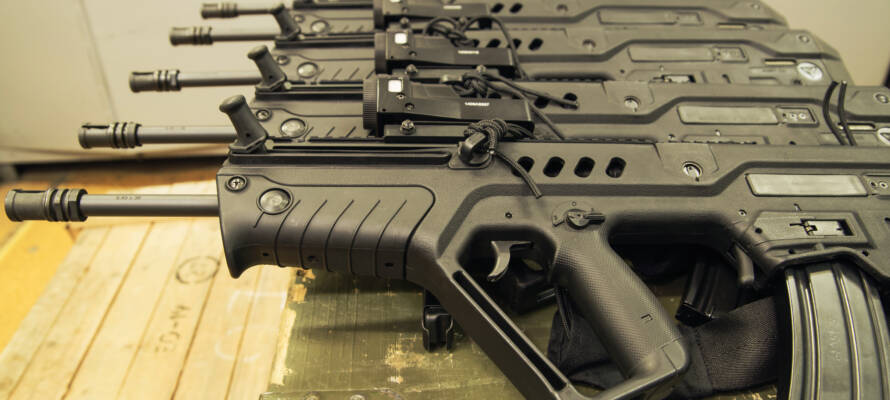The current war in Gaza has led to a rethinking within the Israeli defense establishment about the IDF’s high reliance on foreign weapons.
By Troy O. Fritzhand, The Algemeiner
The Israel Defense Forces (IDF) has moved forward with a purchase order of 20,000 Israeli-made M4A1 rifles, a move that comes as part of the army’s plans to build up domestic production and be less reliant on foreign countries.
According to the request for proposals (RFP) issued by the Defense Ministry, the guns — similar to M16 assault rifles — must be built by at least 51 percent locally made parts, with 100 percent of the assembly taking place in Israel.
Another aspect of the RFP is that the non-Israeli produced parts must “not require an export license,” an issue that has come up with Canada’s decision on March 18 to halt arms exports to Israel. The Canadian parliament cited “human rights” issues in Gaza its decision, leading to backlash from Israeli officials.
“It’s regrettable that the Canadian government is taking a step that undermines Israel’s right to self-defense against Hamas terrorists,” Foreign Minister Israel Katz said of the decision.
The current war in Gaza — which started on Oct. 7 after Hamas terrorists invaded southern Israel, killed over 1,200 people and taking 253 others as hostages — has led to a rethinking within the Israeli defense establishment about the IDF’s high reliance on foreign weapons.
Beyond Canada, there have been growing calls among Democrats in the United States, which is Israel’s biggest defense exporter, to halt US weapons sales to the Jewish state.
Since the outbreak of war on Oct. 7, Israel has asked the US to deliver more than 10,000 tons of ammunition for tanks, missile defense, artillery shells, bombs for the air force, and handheld weapons for civilians that have come in over 240 transport planes and 20 military ships.
To become less reliant on such foreign aid, Israeli Prime Minister Benjamin Netanyahu said in January that the Jewish state is “preparing the defense industries to disconnect from dependency on the rest of the world,” with a “multi-year plan to free Israel from dependence on external purchases. We’ll need to equip locally, with a local manufacturing capability.”
Defense Ministry Director-General Eyal Samir added, “One of the lessons we’ve learned during the war is our need to boost our independence and industry. This is Defense Minister Yoav Gallant’s policy, and we are working on it.”
Earlier this month, The Algemeiner reported that the IDF and Defense Ministry were set to open solicitations for Israeli-made military helmets and uniforms in a move towards manufacturing independence.
